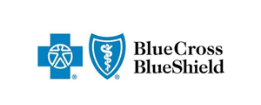Massachusetts Center for Addiction
Drug and Alcohol Rehab & Addiction Treatment Near Walpole, MA

If you or a loved one is seeking drug or alcohol rehab in Walpole, MA, we want you to know that you have options. This includes not only the choice of the addiction center but also the variety of addiction treatment programs that are offered.
If you’re unsure about how to find a drug rehab center in Walpole or what the care process involves, we can help.
Addiction Recovery in Walpole, MA, Starts Here
Massachusetts Center for Addiction recognizes that taking the steps to receive help for an addiction can be an emotional and overwhelming time.
You’re focused on recovering from addiction, but you also need to handle practical details. These include choosing the right addiction recovery center in Walpole, MA, that meets your needs.
You also need to manage work and family responsibilities and determine how to finance the treatment.
We’re here to help answer those questions and make sure you receive the alcohol and drug rehab you need.
If you’re looking for more resources on addiction and addiction treatment, the Substance Abuse and Mental Health Services Administration (SAMHSA) is a great resource.
In addition to information about addiction and treatment, they offer an online directory to assist in finding addiction treatment centers near Walpole, MA, and also a 24-hour national helpline that can be reached at 1-800-662-HELP (4357).

How Long is Alcohol and Drug Rehab?
Many people looking for addiction help worry about how the time needed for treatment will affect their lives. They are concerned about their jobs, families, and money and how a long rehab stay might impact these areas.
The length of drug or alcohol rehab varies greatly. It depends on the type and severity of the addiction, the person’s mental and physical health, and whether they have a history of recovering from addiction and relapsing.
Some people might only need a few days in rehab for a quick reset, but most need more time. Drug or alcohol detox alone can take several days, and the overall treatment length varies by person. Typically, inpatient treatment lasts from one to six weeks.
Initial Stages of Addiction Treatment and Recovery
When making any change, the first steps are almost always the most difficult. This is true when committing to addiction treatment. While the journey of recovery looks different for each individual, it typically begins with a period of drug or alcohol detox. This is then followed by inpatient addiction treatment.
Alcohol and Drug Detox
When alcohol and drug use are a constant factor in a person’s life, the body becomes dependent on the substances used. The first step in addiction recovery is to remove all addictive substances from the body. This helps start treatment with a clean slate.
Most people find it extremely difficult to stop using alcohol or drugs cold turkey. The process can cause tough and sometimes dangerous physical and mental health symptoms that are hard to handle alone.
Detox from drugs or alcohol should always be done in a hospital or a treatment center. Hospitals and addiction detox centers have medical staff to care for the person properly.
Massachusetts Center for Addiction can help connect you with a qualified alcohol and drug detox program near Walpole, MA.
Inpatient Addiction Treatment
Inpatient addiction treatment is a residential program that is often the next step to recovery after detox. This type of treatment offers 24/7 support and structure while removing outside distractions.
During inpatient addiction treatment, an individualized treatment plan is developed. Then, the individual meets with several different addiction recovery specialists. These include addiction counselors, therapists who will meet with you one-on-one, mental health providers, and medical personnel as needed.
Inpatient addiction treatment can be a very short-term solution. Some people choose to participate for a week or less, but it can also be a longer-term approach to addiction recovery. Most inpatient addiction treatment centers near Walpole, MA, offer thirty-day programs. However, the duration can be adapted based on the individual’s needs.
Flexible and Individualized Addiction Recovery Programs
Addiction treatment is a very personal and individual experience. Therefore, it’s important to have a flexible approach and use proven treatments that can be tailored to meet each person’s specific needs.
Massachusetts Center for Addiction offers the following addiction treatment programs.
Partial Hospitalization Programs (PHP) Near Walpole, MA
If you don’t need round-the-clock care or have finished inpatient treatment but aren’t ready for outpatient care, what can you do? Partial hospitalization programs are an option that meets you in the middle.
PHP rehab is a day program that requires a commitment of about six hours a day, multiple days per week. At Massachusetts Center for Addiction, our PHP program is built on an individual approach to addiction recovery.
A typical day may include several sessions. These sessions include addiction counseling, mental health therapy, group therapy, and developing tools to manage independence from addiction long term.
Intensive Outpatient Programs (IOP)
Intensive outpatient programs are a bridge between inpatient or PHP rehab and traditional outpatient addiction treatment. IOP rehab is a partial day program, similar to PHP rehab, but requiring less of a time commitment.
At Massachusetts Center for Addiction, our IOP rehab is structured similarly to PHP, except sessions typically require about three hours instead of six.
Traditional Outpatient Addiction Treatment Near Walpole, MA
Outpatient treatment is extremely effective for individuals who have completed more structured and time-intensive addiction treatments. It’s also a great fit for those who have a lower risk of immediate relapse.
Depending on the individual’s needs, outpatient treatment is focused on individual and group therapies, mental health care, and building new life skills for a lifetime of recovery.
Medication-Assisted Treatment Near Walpole, MA
Addiction is a disease, and it’s important to understand the options available to you for fighting it. There are FDA-approved medications that can help ease the symptoms of withdrawal, reduce cravings for drugs and alcohol, and lower the risk of relapse in the future.
Medication-assisted treatment (MAT) isn’t an approach that is suitable for everyone. A skilled clinician can perform an assessment and determine if MAT is something to consider. They will also suggest the proper medications based on the individual’s addiction and current health.
Addressing Mental Health in Addiction Treatment
Addiction often doesn’t exist on its own. Various factors play into addiction, including co-occurring mental health conditions. During addiction treatment, it is critically important to consider undiagnosed, misdiagnosed, and untreated mental health disorders and how they may influence addictive behaviors.
Dual diagnosis treatment is an approach to addiction recovery that addresses the important influence of mental health. Mental health conditions are identified, diagnosed, and treated while going through addiction treatment.
Dual diagnosis treatment near Walpole, MA, is available at the Massachusetts Center for Addiction.
Lasting Addiction Recovery
The aim of a good rehab program is to help someone overcome addiction and reach a stage where they can stay sober with less help. Programs that provide the tools for independent living are key to long-term addiction recovery.
Sober Living
Transitioning back into independent living following addiction treatment can be difficult. This is especially true if an individual’s home or social life doesn’t support their recovery. Sober living is a transitional living program that assists in adapting to a life of independent living while maintaining sobriety.
Sober living homes are safe, supportive, and drug-free, with the exception of medication-assisted treatment. In sober living homes, everyone must keep working on their recovery through treatment and therapy. This helps them keep improving and learn the skills they need to live independently.
Take The First Step Toward Recovery
If you or someone you know is dealing with addiction, please get in touch with us for a confidential phone call or request a call back with the form below. Starting this journey can be tough, but it’s a brave step towards a healthier life.
"*" indicates required fields
Helping a Loved One with an Addiction
When a loved one is suffering from addiction, it’s only natural to want to help. Addiction recovery is something that the individual alone is accountable for. While you can offer support and help them seek the treatment they need, you can’t go through the process for them.
The best way to help your loved one with an addiction is to encourage and support them in getting the addiction treatment they need. The SAMHSA directory can help you find addiction treatment centers near Walpole, MA, that will offer the best care for your loved one. Massachusetts Center for Addiction is also available to answer your calls and questions 24/7.
Does Insurance Cover the Cost of Addiction Treatment in Walpole, MA?
The Affordable Care Act (ACA) mandates that insurance providers include addiction coverage in their benefits packages. The level of addiction treatment covered varies depending on the individual plan.
If you have questions about your coverage, reaching out to your insurance provider directly is the fastest way to have those questions answered. We can also help verify your insurance benefits during a quick and confidential phone call.
When choosing an addiction treatment center, your out-of-pocket costs will generally be lower if you choose an in-network addiction care provider. Massachusetts Center for Addiction works with most insurance and is in-network with Cigna, Aetna, and Tricare.
We’re Here for You 24 Hours a Day
When you or your loved one need help with an addiction, the perfect time to reach out is now. It doesn’t matter what type of addiction you have or where you are on your journey to recovery. The Massachusetts Center for Addiction meets you where you are and offers the type of treatments, care, and planning to help you overcome addiction. Reach out to us today at 844-486-0671.











